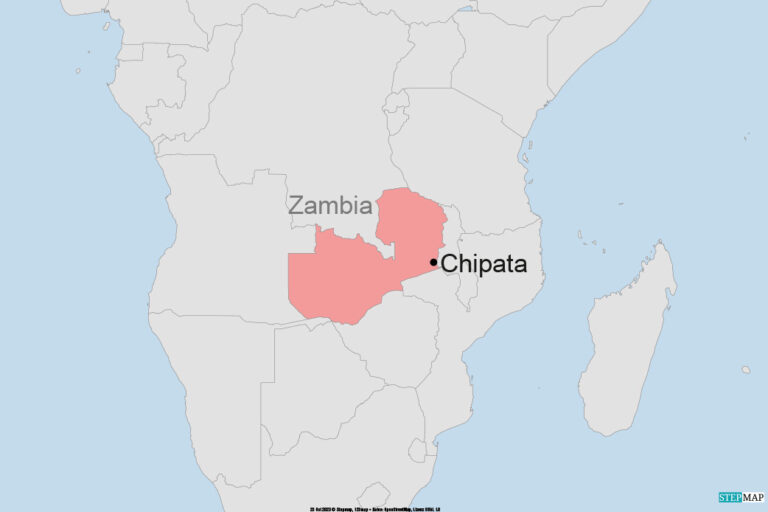This annual event marks the traditional festival of the Ngoni people in February. They celebrate with their famous Ngoma dance, an artistic display of Ngoni strength, stomping and club-waving dancing. The ceremony begins with selected warriors spearing a black bull, slitting its throat and collecting its blood to drink for their paramount chief, the traditional leader. This brutal ritual traditionally signals to the Ngoni that it is time to eat and drink from the season’s crops.
The Ngoni people traditionally live in what is now Zambia, Mozambique, Malawi and South Africa. They are believed to be descendants of the Zulu people of South Africa who settled here fleeing war. “This festival helps us preserve the traditions of our ancestors and helps new generations to understand their roots,” says Monica Mbewe, an Ngoni person living in Lusaka.
Entrepreneurs and businesses in the town of Chipata in eastern Zambia are excited about the festival, which draws both local and international tourists who come to witness the traditional celebrations. “Nkwala is where we showcase our quality service. Our accommodation is always fully booked. We were very busy during the celebrations, hosting many guests,” says Rachel Banda, supervisor at Eastern Comfort Lodge, a popular tourist accommodation in Chipata.
Banda is optimistic that the future of the hospitality industry in the area is bright. Business in Chipata is always at its peak during the Nkwala festival, when tourists from all over the world flock to the border town to take part in the event, which features exciting local cuisine. Neighbouring towns also benefit from the festival’s popularity. Not all tourists can find accommodation in Chipata district, so towns such as Katete, Petauke and Mwami, as well as towns in neighbouring Malawi, accommodate and host tourists.
At Royal Orbit Lodge on the Great East Road, executive rooms cost $145 a night and standard rooms are $104 over Nc’wala weekend – on normal days these rates are much cheaper.
Local taxi driver Aaron Gondwe is enjoying the festival, with many customers paying almost double the usual rate for his services. “My five vehicles will be busy ferrying passengers before, during and after the event and I expect to make a profit of at least 20,000 kyat ($785),” he said.
Traders of various goods and services also benefit as transporters, hoteliers and accommodation operators use the event to boost their sales. “I always expect to see more sales of my works before the event is over. The festival has always been a pillar of our industry. Most of the buyers are tourists who come to take part in Nc’wala,” said Martin Jere, who specializes in carvings and other crafts.
The Eastern Provincial Chamber of Commerce and Industry (EPCCI) has been targeting the business opportunities associated with the festival for many years, and chamber president Thomas Mutonga said that as a legacy of cultural heritage, the Nkwala festival continues to contribute to the growth of the province’s tourism and hospitality industry.
Derrick Sirimina is a Lusaka-based freelance journalist.
derricksilimina@gmail.com

